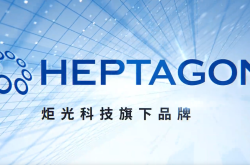Brother, I've Heard ByteDance Is Venturing into Robotics with Salaries Up to 120,000 Yuan a Month
![]() 11/11 2025
11/11 2025
![]() 411
411
Is ByteDance setting up a cosmic-scale robotics factory?
According to reports from various media sources, such as the Science and Technology Innovation Board Daily and China Business Network, ByteDance's Volcano Engine team is on the hunt for senior experts in operational algorithms (pertaining to embodied AI), offering monthly salaries ranging from 95,000 to 120,000 yuan.
The job description outlines that the role will involve spearheading the development of operational algorithms for "humanoid embodied robots." This encompasses algorithm architecture design, grasping algorithms, VLA model development, and the creation of dexterous hands.
The job posting details five key responsibilities, including "leading the development of operational algorithms for humanoid embodied robots," "participating in the pre-training and deployment of large embodied models," and "driving the system integration and deployment of algorithms on hardware." These requirements underscore ByteDance's ambition to create an embodied AI agent that combines advanced large models with complex operational capabilities.
In addition to operational algorithm experts, ByteDance is also seeking professionals in related fields within embodied AI, such as data development engineers, inference performance optimization engineers, and senior experts in motion control algorithms.
The generous salaries suggest that this is not a mere "niche application" but a significant investment in a general-purpose embodied AI platform.
ByteDance's foray into robotics is not entirely new; they previously developed wheeled logistics robots. According to "LatePost," ByteDance began exploring robotics in 2020 and had assembled a team of 50 by July 2023. By 2025, they had produced over a thousand units.
This year, the focus has shifted towards embodied AI.
In July, ByteDance's Seed team unveiled the general-purpose robot model GR-3. This VLA model serves as the robot's brain, enabling it to comprehend instructions, manipulate flexible objects, and even perform tasks using both hands.
Also in July, they introduced the high-degree-of-freedom dexterous hand ByteDexter, boasting 20 degrees of freedom and capable of mimicking human-hand operations through teleoperation and other auxiliary devices.
In September, the Seed team announced its latest robotics research breakthrough—Robix, a "robot brain" designed to enhance robots' thinking, planning, and flexible interaction capabilities. According to "Synced," robots equipped with Robix have demonstrated a range of complex interaction capabilities that were previously challenging to achieve. For instance, when cooking, it can not only prepare ingredients based on dish names (such as "fish-flavored shredded pork") but also proactively identify missing ingredients and inquire about replenishment.
In October, Volcano Engine also inked an embodied AI business cooperation agreement with Chongqing Phoenix Technology Co., Ltd., a subsidiary of Seres Group. The collaboration encompasses "robot decision-making, control, and human-robot collaboration technologies for multi-modal cloud-edge collaboration." ByteDance will provide AI technical support, including AI algorithms, computing power, and multi-modal models, while Seres will contribute industrial scenarios and implementation experience, including real industrial needs, testing environments, and will be responsible for integrating the technology into automotive and robot products.
If we dissect the components of a robot, ByteDance has already made strides in areas such as the robot's brain, hands, legs, algorithms, and scenarios. So, why are they now recruiting to build complete robots?
ByteDance's strengths lie in multi-modal large models and traffic distribution. Embodied AI necessitates long-duration, closed-loop interaction data (encompassing vision, touch, action, and language). Introducing robots into various scenarios, such as "warehousing/distribution/store operations/content production," can generate high-value aligned data, which in turn feeds back into its Agent and VLA models.
"Future Code Bureau" posits that the growth of online users and usage time for the global internet has plateaued, and "online traffic" has dwindled. The new frontier lies in the physical world. Embodied AI robots represent the ultimate data collection terminals, equipped with vision, hearing, and touch, and interacting with the environment around the clock in the real world to gather data. This data serves as the "ideal fuel" for training more advanced AIs. For ByteDance, investing in embodied AI is not only about expanding into new markets but also about securing "next-generation traffic"—data streams from the physical world—thereby sustaining its core advantage of "data-algorithm-product."
Furthermore, the Jinqiu Fund, established by Yang Jie, the former head of ByteDance's Financial Investment Department (with ByteDance as one of its investors), is heavily investing in the embodied AI industry chain. It has already backed robotics companies such as Astribot, Lexiang Robotics, and Shouxing Technology.






